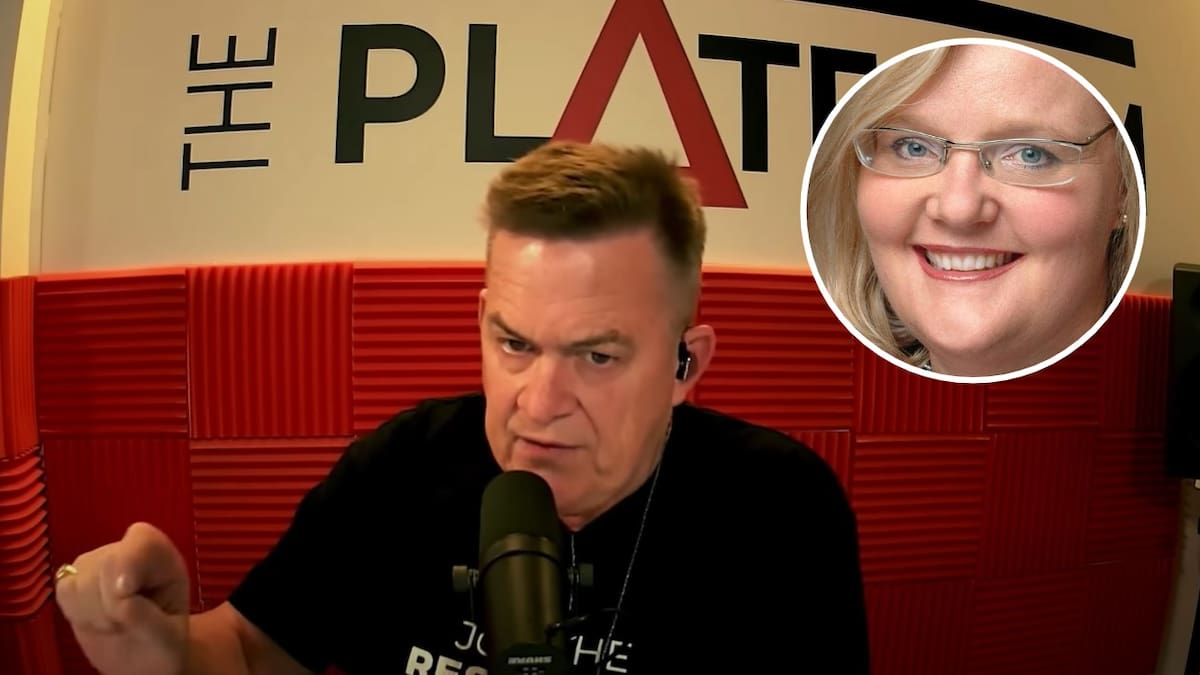“The BSA is no longer relevant or necessary. If Susie and her board think they can regulate the internet, then they are all delusional. They should all be sacked by Minister [Paul] Goldsmith for stupidity immediately.
“It will bring me great delight to see them lose in court or be put out of existence.”
Bowker, a former outspoken shareholder of NZ Herald publisher NZME, has more recently been building his investment in Sky TV.
Caniwi Capital executive chairman Troy Bowker.
He is a champion of free speech and was a key figure earlier this year, alongside businessman and major NZME shareholder Jim Grenon, in leading a charge for changes to the NZME board.
Plunket revealed yesterday that he had received correspondence from the BSA, claiming it had jurisdiction over The Platform after receiving a complaint about comments he had made in July, in which he described Māori tikanga as “mumbo jumbo”.
The BSA was set up to consider complaints and standards of traditional television and radio broadcasters, and its provisional jurisdiction decision has raised eyebrows and concerns across the media and political landscape.
The issue could have major ramifications for the policing and oversight of other online content, including, potentially, some social media videos.
“We’re going to war,” Plunket said yesterday.
Plunket’s position has also been supported by NZ First leader Winston Peters and the Act Party.
“Why does the Broadcasting Standards Authority think they can make up their own rules in secret meetings to act like some Soviet era stasi,” Peters said on social media.
“The blatant overreach on display by the BSA now dictating they can censor and monitor anything transmitted on the internet is highly concerning. Can the BSA please tell us what the legal basis is for their recent outrageous action.”
NZ First’s Winston Peters and Act’s David Seymour have both taken aim at the Broadcasting Standards Authority. Photo / Mark Mitchell
Act leader and deputy prime minister David Seymour said on social media last night: “When the Broadcasting Standards Authority was formed by Parliament in 1989, there was no internet.
“Parliament never asked them to police the internet, but they’re going after The Platform New Zealand. They’ve decided it’s their job because a broadcast is sound and pictures. Sounds like a brave move from them, I look forward to seeing their explanation.”
Act MP Todd Stephenson said last night: “Unelected bureaucrats have no mandate to police the internet. When Parliament created the BSA in 1989, it was to uphold standards for traditional broadcasters. There was no YouTube, no podcasts, no livestreams.
“This is a textbook example of a public agency trying to rewrite its own job description, expanding the bureaucracy, dismissing freedom of choice, and disregarding the boundaries of its democratic mandate.
“The BSA should stick to its knitting. If Parliament wanted a regulator for online content, we would’ve created one through proper democratic process, not let a legacy body declare it by fiat.”
Media and Communications Minister Paul Goldsmith said: “As minister, I cannot comment on operational matters or individual cases. However, my officials will be keeping me updated due to the potential impacts on media regulation.”
BSA responds
BSA chief executive Stacey Wood, in an earlier written response to Herald questions, said: “Yes, we are aware of the ramifications of this decision.”
The BSA board is chairwoman Susie Staley, former TVNZ head of news John Gillespie, Aroha Beck and Karyn Fenton-Ellis.
BSA chair Susie Staley. Photo / Supplied
Wood said the BSA’s jurisdiction had always been determined by the Broadcasting Act.
“We have no intention of acting outside the act – our view is that online broadcasting that resembles a traditional TV or radio station falls within our existing jurisdiction.
“The definition of ‘broadcaster’ and ‘broadcasting’ in Section 2 of the act isn’t limited to TV or radio – it talks about programmes transmitted to the public by any means of telecommunication. Laws often have to be applied to changing circumstances – an obvious example is that laws referring to ‘documents’ aren’t limited to paper and parchment, but include PDFs and other digital forms.”
However, the decision seems to fly in the face of years of debate and discussion in which Governments have looked at media regulation in New Zealand – and which agency, if any, covers certain online content.
The regulation and oversight of standards of New Zealand content is currently a mix of full regulation (broadcasting), industry self-regulation (the professional news media) and little to no regulation (social media). In addition, there is a broad range of laws that govern this area.
Until now, the BSA has been focused on traditional television and radio networks and what they have broadcast on air (including later online content).
The BSA produced an explainer video in June in which it stated: “Consumers are exposed to more content across more platforms than ever before.
“If you have seen or heard something that concerns you, you may be unsure of where to go to voice your complaint. The good news is there are regulators who can help you, depending on the type of content.
“The Broadcasting Standards Authority, or BSA, handles complaints that TV or radio programmes breached broadcasting standards. It can also take complaints about online content that was first broadcast on TV or radio.
“In all cases, you must complain within 20 working days of the TV or radio broadcast.”
Editor-at-Large Shayne Currie is one of New Zealand’s most experienced senior journalists and media leaders. He has held executive and senior editorial roles at NZME including Managing Editor, NZ Herald Editor and Herald on Sunday Editor and has a small shareholding in NZME.

